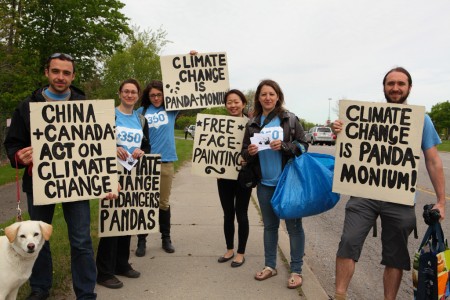A committee formed by the administration of McGill University has rejected the argument from Divest McGill that the school should sell its stock in “corporations involved with the production, refining, transport and sale of fossil fuels” and “financial institutions which have not adopted a policy of making no further loans to corporations that produce, refine, transport of sell fossil fuels”.
Rather startlingly, the committee concluded that: “Since the Committee is not satisfied that ‘social injury’ has occurred, no action was considered or is recommended.”
Given that climate change is the ‘greatest market failure the world has ever seen’ the case that fossil fuel companies are doing social harm is very strong. While the committee’s decision is disappointing, it is useful for Toronto350.org insofar as it shows what sort of things the committee that will eventually be formed here is likely to focus on. For instance, no discussion of science and a strong emphasis on law. Knowledge that we derive from this response will help us make our own brief stronger.
We are also calling for a different set of actions from the University of Toronto, which I think will make it easier to establish our case. Specifically:
- Make an immediate statement of principle, expressing its intention to divest its holdings in fossil fuel companies within five years,
- Immediately stop making new investments in the industry,
- Instruct its investment managers to wind down the university’s existing holdings in the fossil fuel industry over five years, and
- Divest from Royal Dutch Shell by the end of 2013.
This seems easier than asking a Canadian university to divest from all financial institutions which invest in fossil fuel companies, which probably includes all those in Canada.
The McGill committee never got to questions of practicality or financial impact on the university, since they rejected the basic claim that fossil fuel companies are doing social harm. If we are able to establish the second point to the satisfaction of the University of Toronto, we will still need to address concerns in the first two areas.
Our brief still requires a lot of work, so if you know anyone in Toronto who would be willing to help, please encourage them to get in touch with us. We could especially benefit from anyone with expertise in law or finance.

